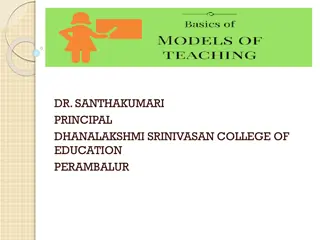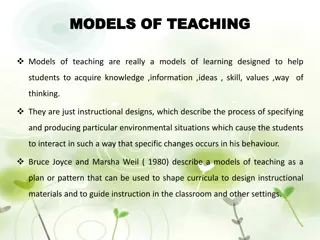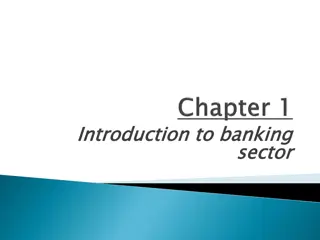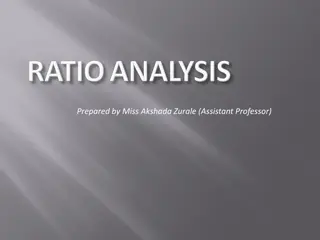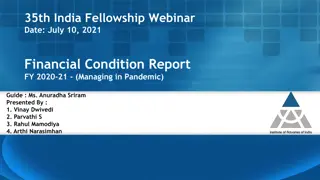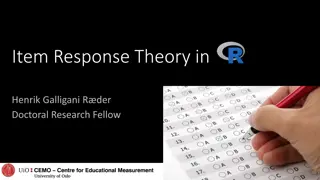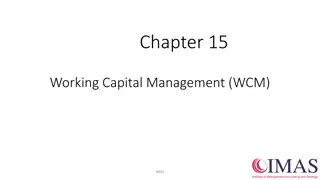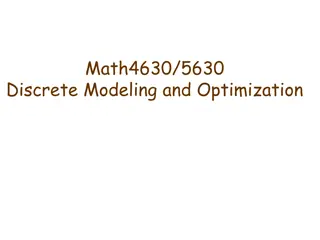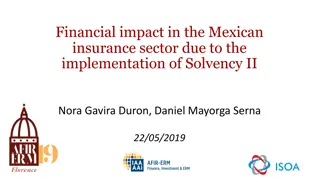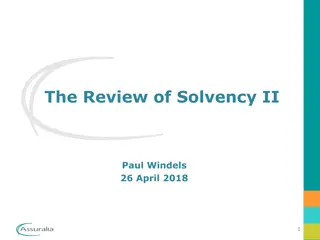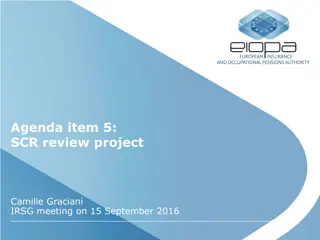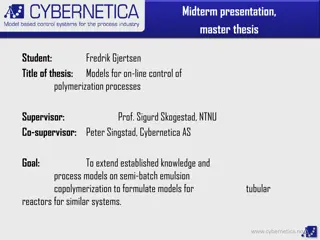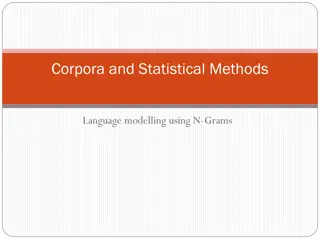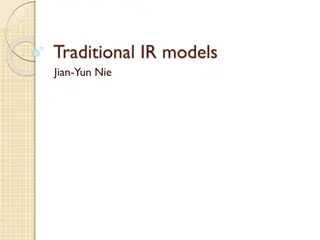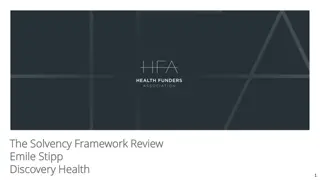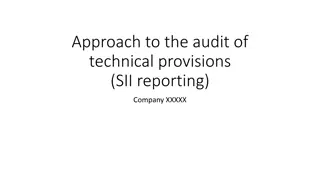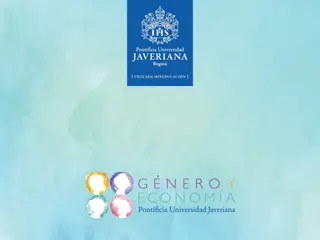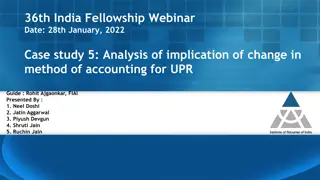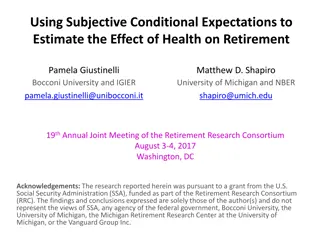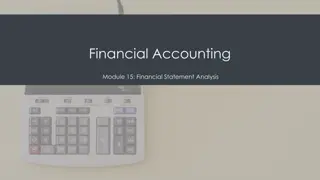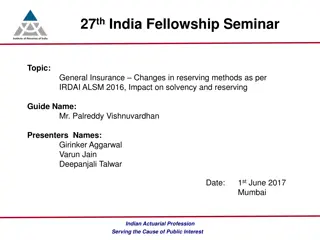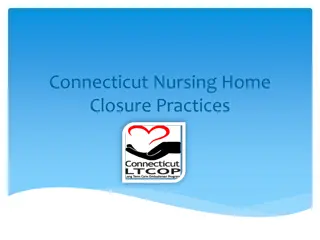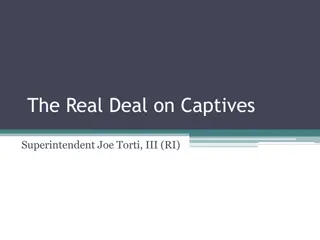Global Climate Models
Scientists simulate the climate system and project future scenarios by observing, measuring, and applying knowledge to computer models. These models represent Earth's surface and atmosphere using mathematical equations, which are converted to computer code. Supercomputers solve these equations to pr
3 views • 15 slides
System Models in Software Engineering: A Comprehensive Overview
System models play a crucial role in software engineering, aiding in understanding system functionality and communicating with customers. They include context models, behavioural models, data models, object models, and more, each offering unique perspectives on the system. Different types of system
3 views • 33 slides
Understanding Input-Output Models in Economics
Input-Output models, pioneered by Wassily Leontief, depict inter-industry relationships within an economy. These models analyze the dependencies between different sectors and have been utilized for studying agricultural production distribution, economic development planning, and impact analysis of i
8 views • 7 slides
How to get Small Marginal Farmer Certificate in Tamil Nadu
Solvency certificate, individuals or organizations can apply through the e-Sevai Tamil Nadu portal, and the Tahsildar\/Deputy Tahsildar in their Taluk will issue the certificate, providing information about financial stability and solvency as required for verification by government and commercial of
6 views • 5 slides
Solvency Certificate Format to Apply in Online E-savai
Solvency certificate, individuals or organizations can apply through the e-Sevai Tamil Nadu portal, and the Tahsildar\/Deputy Tahsildar in their Taluk will issue the certificate, providing information about financial stability and solvency as required for verification by government and commercial of
4 views • 5 slides
Understanding Models of Teaching in Education
Exploring different models of teaching, such as Carroll's model, Proctor's model, and others, that guide educational activities and environments. These models specify learning outcomes, environmental conditions, performance criteria, and more to shape effective teaching practices. Functions of teach
2 views • 20 slides
Understanding Models of Teaching for Effective Learning
Models of teaching serve as instructional designs to facilitate students in acquiring knowledge, skills, and values by creating specific learning environments. Bruce Joyce and Marsha Weil classified teaching models into four families: Information Processing Models, Personal Models, Social Interactio
1 views • 28 slides
Understanding the Banking Sector Fundamentals
Banks play a vital role in the economy by accepting deposits and providing loans, aiding in capital formation and accumulation. The word "bank" originates from the French term for a bench. The Banking Regulation Act of 1949 defines banking activities. Banks deal with money deposits, credit, and comm
0 views • 20 slides
Considerations for Guernsey Regulated Insurance Providers Issuing Policies in the UK
This presentation outlines key issues for Guernsey regulated insurance entities when issuing policies on a non-admitted basis in the UK. It emphasizes the differences between the regulatory regimes in Guernsey and the UK, highlighting challenges and recommendations while comparing solvency models, r
2 views • 9 slides
Understanding Ratio Analysis in Financial Statements
Ratio analysis is a crucial process in interpreting financial statements by deriving accounting ratios from the balance sheet and profit and loss account. It involves assessing short-term liquidity, long-term solvency, activity ratios, and profitability ratios. Liquidity ratios like current ratio, q
2 views • 41 slides
Significance of Models in Agricultural Geography
Models play a crucial role in various disciplines, including agricultural geography, by offering a simplified and hypothetical representation of complex phenomena. When used correctly, models help in understanding reality and empirical investigations, but misuse can lead to dangerous outcomes. Longm
0 views • 8 slides
Understanding CGE and DSGE Models: A Comparative Analysis
Explore the similarities between Computable General Equilibrium (CGE) models and Dynamic Stochastic General Equilibrium (DSGE) models, their equilibrium concepts, and the use of descriptive equilibria in empirical modeling. Learn how CGE and DSGE models simulate the operation of commodity and factor
4 views • 15 slides
Insights from 35th India Fellowship Webinar on Managing Financial Condition in Pandemic
The 35th India Fellowship Webinar held on July 10, 2021, focused on the impact of COVID-19 on financial conditions in FY 2020-21 and strategies for managing during the pandemic. The session featured Ms. Anuradha Sriram, Chief Actuarial Officer of Aditya Birla Health Insurance Co. Ltd., who shared va
1 views • 13 slides
Enhancing Information Retrieval with Augmented Generation Models
Augmented generation models, such as REALM and RAG, integrate retrieval and generation tasks to improve information retrieval processes. These models leverage background knowledge and language models to enhance recall and candidate generation. REALM focuses on concatenation and retrieval operations,
1 views • 9 slides
Understanding Item Response Theory in Measurement Models
Item Response Theory (IRT) is a statistical measurement model used to describe the relationship between responses on a given item and the underlying trait being measured. It allows for indirectly measuring unobservable variables using indicators and provides advantages such as independent ability es
2 views • 32 slides
Efficient Working Capital Management in Businesses
Working capital management involves strategically balancing current assets and liabilities to ensure solvency and maximize asset returns. The main goals include optimizing liquidity, profitability, and resource utilization. Liquidity management is crucial for meeting short-term obligations, and sour
0 views • 27 slides
Understanding Discrete Optimization in Mathematical Modeling
Discrete Optimization is a field of applied mathematics that uses techniques from combinatorics, graph theory, linear programming, and algorithms to solve optimization problems over discrete structures. This involves creating mathematical models, defining objective functions, decision variables, and
0 views • 12 slides
VOLUNTARY WINDING UP
Exploring the distinctions between voluntary winding-up and compulsory winding-up in company law, focusing on the procedures involved in members' voluntary winding-up, declaration of solvency, and potential criminal sanctions for insolvent companies. The content delves into key aspects such as the a
0 views • 12 slides
Impact of Solvency II on Mexican Insurance Sector
The study examines the financial impact of the implementation of Solvency II in the Mexican insurance sector, focusing on differences between foreign and domestic insurance companies. Data from 92 insurance companies over a period from 2003 to 2018 is analyzed to evaluate changes in performance metr
0 views • 16 slides
Understanding the IL&FS Crisis: Decoding India's Lehman Moment
The IL&FS crisis in India unfolds as a significant economic event, impacting various sectors. It involves high debt, strategic shifts, defaults, and government interventions. The gravity of the crisis, concerns about contagion effects, impacts on markets, and doubts over projects raise questions abo
0 views • 9 slides
Review of Solvency II Implementation and Impact in Belgium
Early adoption of Solvency II by Belgian insurance companies involved a challenging timeframe and significant costs, leading to successful implementation through intense dialogue. Strengths of Solvency II include a risk-based framework and market-consistent valuation, while weaknesses lie in coping
0 views • 20 slides
Observational Constraints on Viable f(R) Gravity Models Analysis
Investigating f(R) gravity models by extending the Einstein-Hilbert action with an arbitrary function f(R). Conditions for viable models include positive gravitational constants, stable cosmological perturbations, asymptotic behavior towards the ΛCDM model, stability of late-time de Sitter point, a
1 views • 12 slides
Review Project on Solvency Capital Requirement Standard Formula
The agenda item discusses the review project led by Camille Graciani at the IRSG meeting in September 2016. The project aims to enhance the Solvency Capital Requirement standard formula by reducing complexity, correcting technical inconsistencies, and addressing market risks. Key objectives include
1 views • 5 slides
Understanding Wireless Propagation Models: Challenges and Applications
Wireless propagation models play a crucial role in characterizing the wireless channel and understanding how signals are affected by environmental conditions. This article explores the different propagation mechanisms like reflection, diffraction, and scattering, along with the challenges and applic
1 views • 14 slides
Models for On-line Control of Polymerization Processes: A Thesis Presentation
This presentation delves into developing models for on-line control of polymerization processes, focusing on reactors for similar systems. The work aims to extend existing knowledge on semi-batch emulsion copolymerization models, with a goal of formulating models for tubular reactors. Strategies, ba
0 views • 16 slides
Understanding N-Gram Models in Language Modelling
N-gram models play a crucial role in language modelling by predicting the next word in a sequence based on the probability of previous words. This technology is used in various applications such as word prediction, speech recognition, and spelling correction. By analyzing history and probabilities,
0 views • 101 slides
Understanding Information Retrieval Models and Processes
Delve into the world of information retrieval models with a focus on traditional approaches, main processes like indexing and retrieval, cases of one-term and multi-term queries, and the evolution of IR models from boolean to probabilistic and vector space models. Explore the concept of IR models, r
0 views • 65 slides
Review of Solvency Framework in Healthcare Sector
This review examines the Solvency Framework in Healthcare, discussing current framework, proposed changes, risks faced by schemes, and comparison of ITAP and CMS models in managing liabilities. It highlights the need for effective risk assessment and intervention strategies to ensure financial stabi
0 views • 23 slides
Audit Approach for Technical Provisions in Company XXXXX
This document presents the audit approach for the technical provisions of Company XXXXX, focusing on Best Estimate Life and Non-Life under Solvency II. It outlines the risk assessment and main audit procedures performed, emphasizing the importance of a robust control environment. The document aims t
0 views • 6 slides
Understanding Cross-Classified Models in Multilevel Modelling
Cross-classified models in multilevel modelling involve non-hierarchical data structures where entities are classified within multiple categories. These models extend traditional nested multilevel models by accounting for complex relationships among data levels. Professor William Browne from the Uni
0 views • 13 slides
Understanding General Equilibrium Models and Social Accounting Matrices
General Equilibrium Models (CGE) and Social Accounting Matrices (SAM) provide a comprehensive framework for analyzing economies and policies. This analysis delves into how CGE models help simulate various economic scenarios and their link to SAM, which serves as a key data input for the models. The
0 views • 50 slides
Analysis of Implication of Changing UPR Accounting Method in General Insurance
This presentation discusses the impact of changing the method of accounting for Unearned Premium Reserve (UPR) in a general insurance company in India. The analysis explores the implications on earnings, premium and claim liabilities, profit/loss, and solvency due to transitioning from the 1/365th m
0 views • 38 slides
Causal Effects of Health on Retirement Using Subjective Conditional Expectations
This research explores the impact of health on retirement decisions by analyzing subjective conditional expectations of older workers. By studying the relationship between health, work, and retirement planning, the study aims to provide insights into policy implications for ensuring the future solve
0 views • 19 slides
Financial Statement Analysis and Ratio Calculation in Accounting
Explore the essential concepts of financial statement analysis, including ratio calculation, liquidity measures, operating efficiency, profitability assessment, and solvency analysis. Understand how to compare financial statements within a company, against industry averages, and with competitors. Di
0 views • 40 slides
Challenges in Pricing Cyber Risk and Terrorism Risk: Impact on Solvency and Reserving Methods
The seminar discusses the challenges in pricing cyber risk and terrorism risk, with a focus on changes in reserving methods as per IRDAI ALSM 2016 and their impact on solvency and reserving. Key areas of consideration under ALSM 2016, valuation of assets, estimation of liabilities, and more are cove
0 views • 21 slides
Overview of Final Accounts Preparation in Business
Final accounts preparation involves creating the Income Statement or Profit and Loss Account to determine profit or loss, and the Balance Sheet to show the financial position of a company. The objectives include conveying information to stakeholders and assessing solvency. These financial statements
0 views • 8 slides
Audit Approach for Technical Provisions in Company XXXXX
The document outlines the audit approach for technical provisions of Company XXXXX in compliance with Solvency II reporting requirements. It includes a preliminary notice for discussion with the NBB, risk assessment factors, internal control environment evaluation, and main audit procedures performe
0 views • 6 slides
Understanding Composite Models in Building Complex Systems
Composite models are essential in representing complex entities by combining different types of models, such as resource allocation, transport, and assembly models. Gluing these models together allows for a comprehensive representation of systems like the milk industry, where raw materials are trans
0 views • 27 slides
Connecticut Nursing Home Closure Practices
Foundation of CT Closure Interventions: Grant Street Rehabilitation Center experienced closure in 1999 with a high proportion of Medicaid recipients and residents with significant physical and mental health needs. Current CT interventions involve the Nursing Home Financial Advisory Council and Distr
0 views • 11 slides
Understanding Captive Insurance: Regulatory Challenges and Framework
Federal agencies express systemic concerns over captive transactions, emphasizing the importance of distinguishing between different types of captives. The NAIC Solvency Framework aims to establish a consistent baseline for accounting practices in the insurance industry while allowing for flexibilit
0 views • 14 slides





